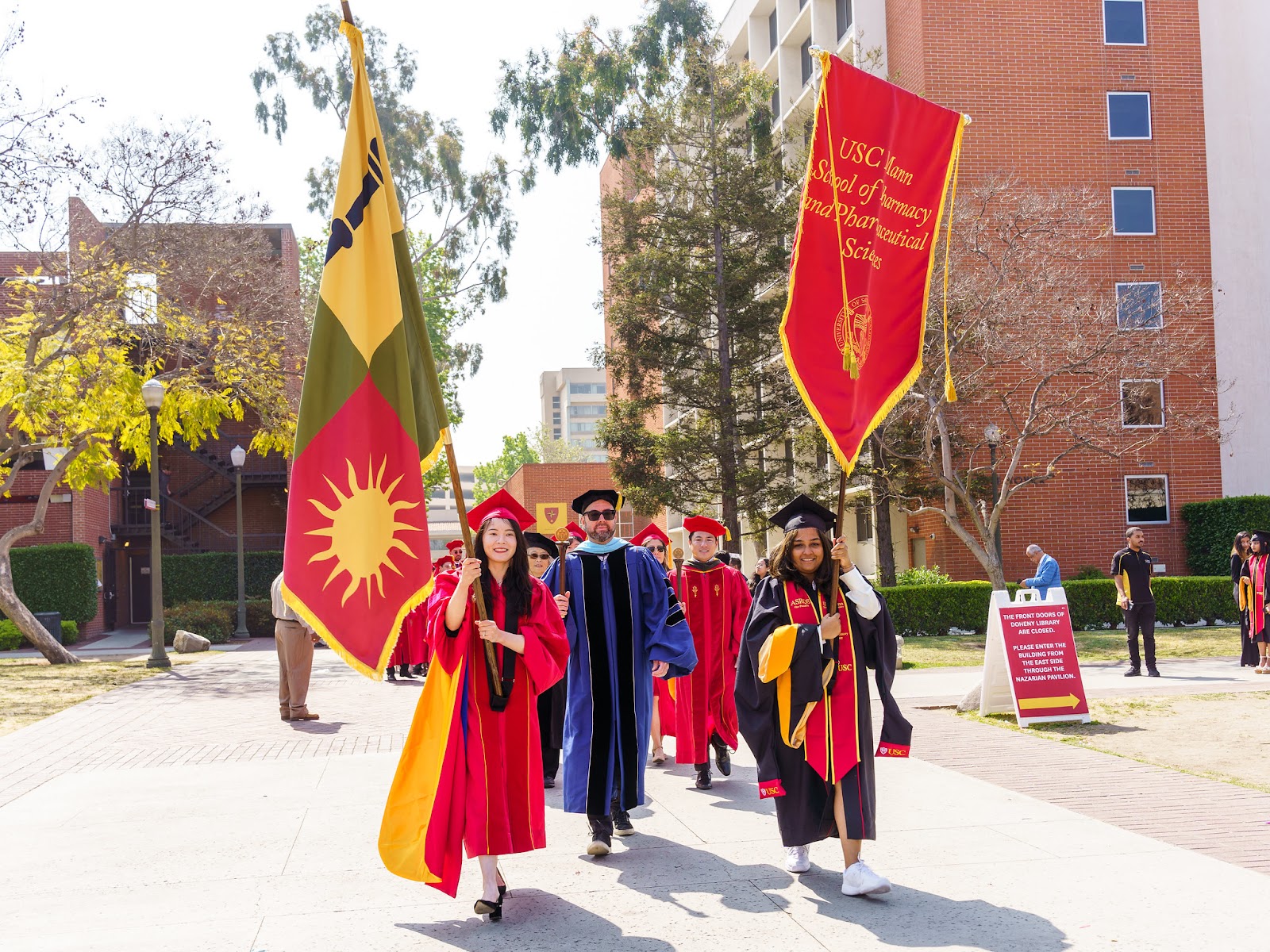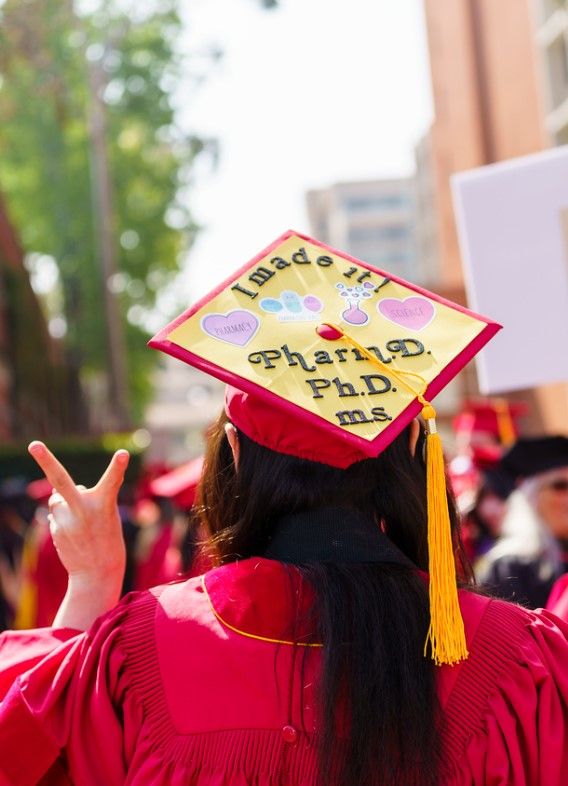My pieces of advice for PhD students
Kerui-Peng June 06, 2023
Congratulations on being accepted into the PhD program and choosing to join the Mangul Lab at USC!
I was the first PhD student in this lab and recently graduated from the CXPT PhD program in less than 4 years. Looking back, it was a challenging and rewarding experience. I never regret that I invested a few years of my life in doing this, in fact, I have grown so much over the past years. Here is my personal advice based on what I have learned by myself or from others.

Be ready to learn new skills
Most of us who were admitted to this program come from a biomedical research background, however, our lab focuses on research that requires computational skills. Personally, I did not have prior experience but I chose Dr. Serghei Mangul to be my advisor without a second thought. This was because I was fascinated by big data and I was eager to learn computational skills. I thought it would be cool if I knew how to code and then I would be able to decipher the unknown at a much larger scale.
It was a steep learning curve in the beginning, but if you have passion, interest, and patience, you will master it. You may enroll in online courses, self-taught, and also ask for help from the members of the lab who are more experienced.
Once you gain new skills, you should be proud of yourself because you are never afraid to face obstacles and conquer challenges. You should also be confident in yourself that you can do anything once you put your mind to it. Now, you are equipped with the skills and knowledge to take them with you wherever you go. Skills are important, these will help you in the long run, no matter what you choose to do in the future.
Don’t be afraid to reach out for help
If you encounter difficulties in your research projects. You may try to resolve them on your own at first because you will learn as you try to find a solution and you will grow to be an independent researcher. However, after spending hours and hours on it, you are still clueless, please feel free to seek help from others. Being collaborative and engaging in discussions will help you as well because no complicated task can be finished alone nowadays.
Be organized, adaptive and professional
There will be many tasks you need to complete in a day, a week, or a semester. It is very important to learn how to become organized and prepared for surprises. I personally like to plan things well so that I know all the deadlines and try to finish before the deadlines. However, there are still many times that I have urgent tasks with a short amount of time to finish. I usually do it right away or soon after I am notified so that it can be out of the way. You can find your own comfortable ways of dealing with many things at the same time.
The COVID-19 global pandemic occurred shortly after I started my PhD, as a result, I spent most of my PhD days during the pandemic. It was so unexpected and I worked with Dr. Serghei Mangul to find the best way to stay productive while being safe. I was very fortunate that due to the nature of my work, my projects were not negatively affected by the fact that we had to work from home. However, how to be adaptive to new situations was something that I learned during this unprecedented time.
As future young professionals, professionalism is something that we should develop but is often not taught during PhD program. Things like how to properly reply to emails, how to dress up for interviews or for work, how to interact with others professionally, how to be honest when you make a mistake, how to respect others’ work, and how to show gratitude to others. I believe these may be neglected by many, but learning the proper ways can benefit us. Having good ethics makes you a good person to work with.
Don’t compare yourself to others
Each one of us has our own pace of learning and working on projects. It is hard to do but we can remind ourselves that the only person we should compare ourselves with is our past selves instead of others. p>SAMPLE PROJECTS</p> We propose research projects that are well-suited to model for the URAP Fellow how scientific methods, data, and ideas translate in real time. Each benchmarking study will require the Fellow to select performance metrics relevant to their research questions; document their work as they install, run, and debug each computational tool; generate summary statistics using open-source genomics tools; interpret results in the context of major scientific questions; and present project materials on an open-source data-sharing platform.
Be authentic to yourself
PhD is a long journey, if you ever discover that you do not see yourself continuing to do research in the future, that is totally okay. You may explore different career opportunities that may be possible with your degrees. Do not be afraid to reach out to people at our school or on LinkedIn to seek advice. Many people would like to share their career paths, especially non-traditional ones, with students. You will learn a lot from having informational interviews with them.
Set goals for yourself
If I have goals for myself, I am more motivated to do the work and get closer to where I hope to be. I wanted to do an industry internship the summer before my graduation. With this goal in mind, I worked hard on my projects during the second and third years, so that I would not be behind if I were to be away for a summer. Luckily I was able to secure an internship last year and gain new experience in a global pharmaceutical company. After I came back, I devoted myself to wrapping up my projects so that I could graduate this year. I communicated with Dr. Serghei Mangul and Dr. Houda Alachkar (my co-PI) about my ideal timeline. Fortunately, they were very supportive and encouraged me to get ready for graduation.
Develop your support system
You need to know that you are not alone in the PhD journey. Make some friends along the way. No matter whether it is to cheer each other up or complain about things together, it is all good. This is never a one-way street, please do help and support your friends when they are in need as well.
Last but not least, work hard and enjoy the journey!
I really like the advice that I received from Dr. Frances Richmond and Dr. Eunjoo Pacifici. I want to share this with you as well. “Once you say yes to something, just do the absolute best job you can.” “Try to be like a sponge, learn from the people, and get the most out of this experience.”
